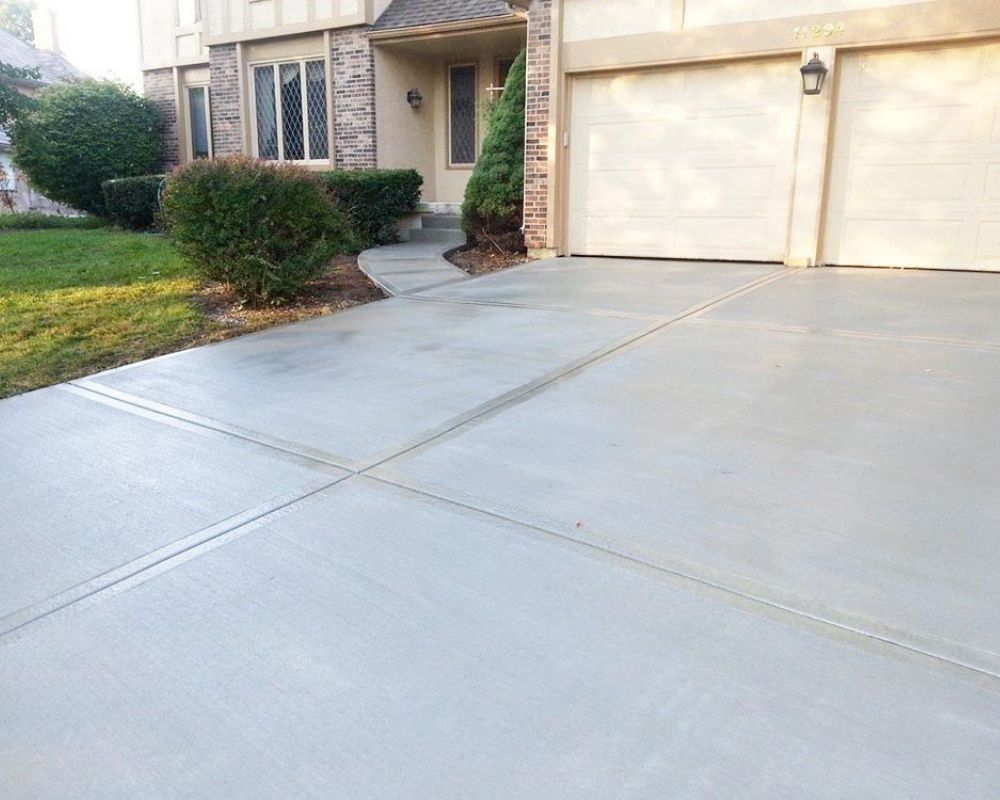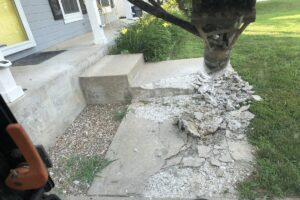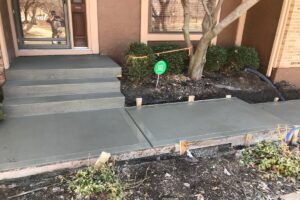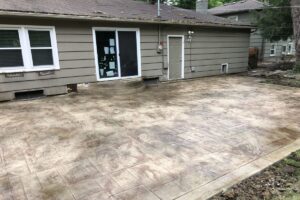You may already know that winter weather can be particularly straining on concrete driveways, and if you are noticing damage on your driveway this winter, you may be wondering if you should repair or replace your driveway this spring.
To properly make this determination, you will need to know what kind of damage to look out for and how to assess the severity of the damage to your driveway.
At Johnson Concrete, we are experts and professionals in installing new concrete driveways and, in our decade-plus of business, have come across all types of damage to concrete driveways.
We have put together this article to help you determine if you can repair your driveway or if your driveway requires a total replacement.
Assess the Severity of Any Cracks
Winter weather can cause the expansion of any existing cracks as water seeps into the fissures and freezes. As the water freezes into ice, it causes the split to expand across the driveway, sometimes becoming wider and deeper as it grows.
While there’s no hard and fast rule to determine if the cracks on your driveway are too severe to repair, a general rule of thumb is to assess if the cracks are more than two inches deep.
Once the cracks are at least two inches deep, they tend to not respond well to repairs and fills often fail after a short time. If the cracks on your concrete driveway are at this point of damage, we often recommend replacement.
In Deciding if You Should Repair or Replace Your Driveway This Spring, Look for Potholes
Potholes can significantly affect the integrity of your concrete driveway as they create weak spots and can lead to crumbling outward from the pitting or pothole. Freezing and thawing of water during the winter can cause and greatly expand the damage of holes in your driveway. Using chemicals to melt snow and ice on the driveway in the winter can also cause potholes to expand as the chemicals degrade the exposed materials of the concrete.
Some potholes can be repaired, but keep in mind that the repairs can often look patchy and aren’t a permanent solution. If water has been seeping for a long time underneath the driveway through the potholes, drainage efficiency and the overall integrity of your driveway can be affected.
Especially if your driveway is already fairly old, replacement may be the best decision in the long run.
Think About Long Term Investment and Age of Your Driveway
If your concrete driveway is already over 20 years old and is showing signs of damage, your best bet may be to schedule a spring replacement. Winter can be especially hard on old concrete driveways that have weathered the effects of decades of freezing and thawing, chemical exposure, and sometimes, not enough or any maintenance.
Rather than spend the frustrating time and money on repeated short-term fixes for your aging driveway, consider investing in a new concrete driveway, and plan on following maintenance guidelines to maximize its longevity and smooth appearance. Using preventative maintenance is always a great way to increase the longevity of your investments.
Contact the Concrete Experts to Determine if You Should Replace or Repair Your Driveway This Spring
Once you have assessed your concrete driveway, you can always call the #1 rated Kansas City concrete contractors for a new driveway quote. At Johnson Concrete, we are here to help you determine if you should replace or repair your driveway this spring, and if replacement is needed, we can provide a high-quality, beautiful, and stable new concrete driveway…call us today!




